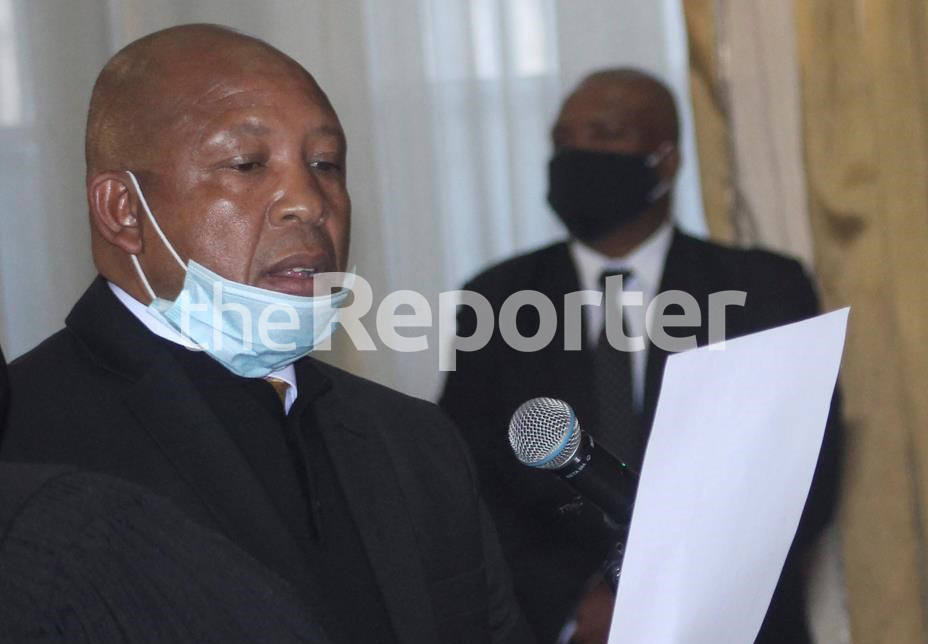By Neo Kolane
The government of Lesotho in collaboration with UNDP and other development partners are already implementing actions that promote environmental management, conservation of biodiversity, renewable energies, building resilience and adaptation to climate change and implementation of climate smart agricultural practices, among others.
Lesotho is ranked 165th in the world on the Human Development Index. While the adjustment for planetary effects is minimal, it pushes it lower by four points. This means it must be continuously conscious of the development actions which may compromise the planetary ecosystems.
Speaking at the launch of the Human Development Report (HDR) 2020 in Maseru this week, UNDP resident representative, Betty Wabunoha said although these projects have been piloted in a few communities, the initial impact on livelihoods, household food security and the environment provide a justification for more investments in the sector, for accelerating attainment of SDGs and eradicating poverty.
This was the launch of the 30 anniversary edition of the HDR, titled ‘The Next Frontier: Human Development and the Anthropocene’.
“In this 30 anniversary edition of the HDR2020, focus is on the inter-relationship between the people and the planet. This relationship has entered a new territory, the age of the Anthropocene. For the first time in a relationship spanning over 300,000 years, instead of the planet shaping humans, humans are shaping the planet; this is Anthropocene, the age of humans.
“We have recognized that inculcating planet-smart systems changes from the community level and empowering the people can have a ripple effect in promoting change of behavior and attitudes towards environmental sustainability.”
UNDP’s strategy is poised to working together with government and partners for developing lasting solutions and finding pathways ‘Beyond recovery, towards 2030’, taking into consideration the need to turn around the impact of COVID-19 and maintaining the SDGs as the compass for development actions.
“We are hopeful that this report will contribute to informing and managing these complex but necessary policy choices for better recovery for Lesotho. It is our commitment to work with the government and the people of Lesotho to advance the human development approaches to find lasting development solutions for the country.
“The human development approach has been replicated at country and regional levels since 1992. And, just like the global report, these reports are useful to inform and evaluate policy choices and design, monitor and forecast development trends.
“It is our anticipation therefore, that this National Human Development Report will provide a ground-breaking analysis for selected issues and facilitate advocacy among stakeholders for achieving the Lesotho development objectives,” Wabunoha concluded.









